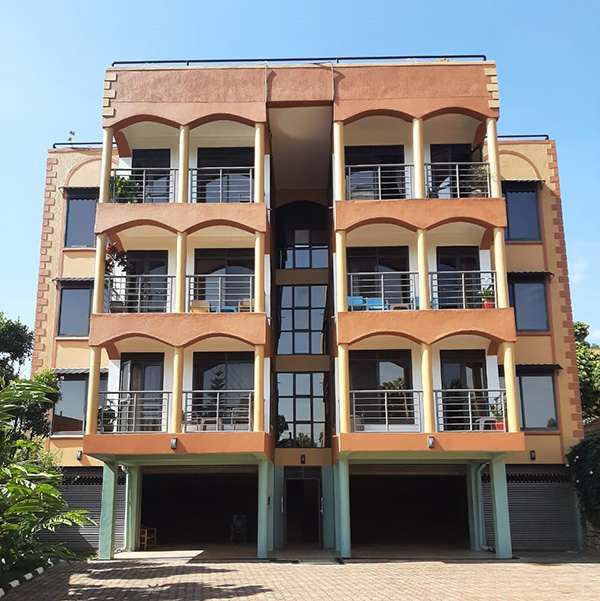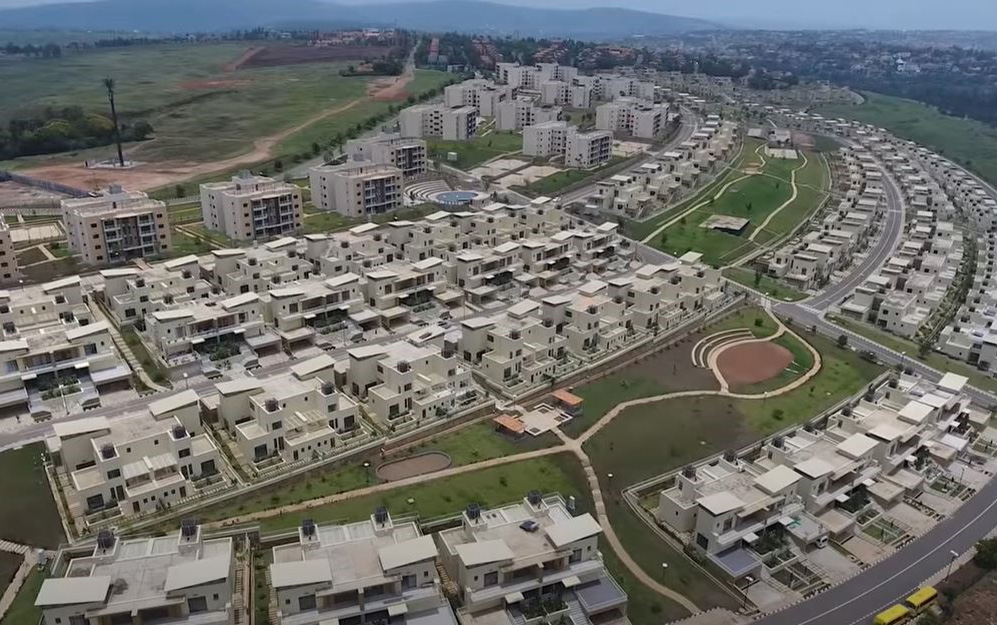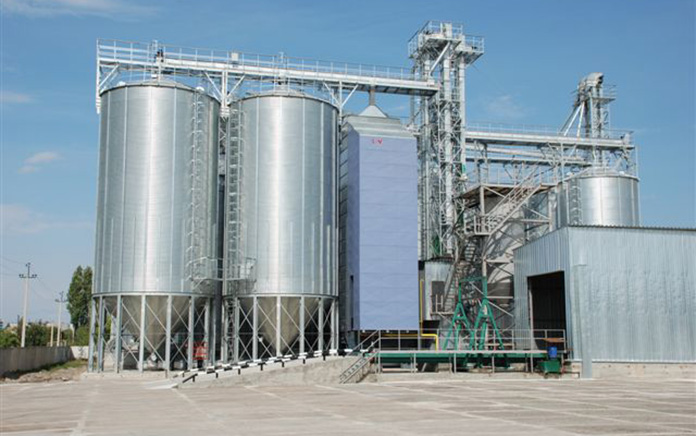Investment entrepreneur Jeremiah “Jerry” Kasigwa is spreading word among African-Americans – and Africans themselves –that now is an excellent time to invest in Africa, and particularly in his native Uganda.
“Africa is one of the last remaining frontier markets and is expected to be the only region with rising growth over the next 10 to 20 years,” he states.
With a bachelor’s degree in economics and a master’s in international economics and finance from Brandeis University, and experience from consulting stints for the World Bank’s South Asia and Africa regions and a year-long investment associate role at Bridgewater Associates in Connecticut, Kasigwa set up shop both in the U.S. and Africa.
He co-founded Global Investment Partners in New York in 2006 and still serves as its chief investment officer. He joined Rwanda Investment Group in 2010 as a senior consultant and subsequently served as project manager for that country’s biggest cement plant, traveling to China to negotiate a construction and procurement contract.
In 2011 he launched Nile Bridge Consultants with offices in Rwanda and Uganda, negotiating large construction contracts locally and in China, including for the landmark development of a high-end residential housing project in Kigali, Rwanda’s capital.
In 2013 Kasigwa established Nile Bridge Farms (NBF) in Uganda, a technology-focused agribusiness specializing in grain, animal feed, and human food production. The company, he explains, is a response to the food security and food safety challenges facing Uganda and most of sub-Saharan Africa.
Kasigwa continues to operate in East Africa’s real estate sector. His flagship project is Comboni Apartments located in Kampala, Uganda’s capital, which he conceptualized, financed, constructed, and completed in 2015. A block of six high-end residential apartments, the property has full occupancy with an open market value of US$1.45 million.

He currently is working on a multiphase health and lifestyle condominium project in Uganda’s tourist town of Jinja along the River Nile.
On his current trip to New York, Kasigwa shared with The Network Journal his thoughts about investment in Africa and more.
TNJ: Why do you say Africa is an attractive investment destination?
Kasigwa: Over the years, there has been underinvestment in Africa. This has created pent-up demand and offers investors an opportunity to make a significant impact while generating high returns.
Africa’s investment attractiveness is due to several positive attributes, such as numerous scalable investment opportunities; a ready and burgeoning market; an educated, skilled, and inexpensive labor force; a growing young population; and amazing weather.
This all sets up Africa as a high-return, high-impact investment destination for the discerning investor who is willing to learn about the continent and the immense wealth and untapped opportunities that it presents.
TNJ: Do African-Americans have a track record of investing in Africa?
Kasigwa: Generally speaking, there has not been a lot of investment in Africa even compared to the rest of the developing world.
One recent study estimated that less than 0.1 percent of North American pension funds and endowments have capital allocations in Africa. This is unfortunate, given the enormous opportunities that exist on the continent.
African-Americans, in particular, do not have a strong track record of investing in Africa. However, we have seen those numbers start to pick up in the last few years after dedicated and concerted campaigns from the leadership in countries like Ghana, Senegal, and Nigeria to attract African-Americans ‘back home.’
The ones that have invested have mainly been in real estate, agribusiness and fintech services. The anecdotal evidence so far is that these investments are yielding attractive returns. With increased information and awareness about Africa, I’m sure it’s only a matter of time before we see greater numbers of African-Americans investing on the continent.
TNJ: What are the best investment sectors in Africa?
Kasigwa: There are many, but the sectors that present the highest return potential for investors include:
Tourism. Traditionally, Africa has been known as the “safari capital of the world.” Still, the Covid-19 pandemic has woken up travelers and tourists to become more intentional and purposeful about their travel, which has a positive impact on local communities and makes for a richer travel experience. This will open up new opportunities in the tourism space for Africa, such as community tourism, agrotourism, reconnection travel, health and wellness vacations.
Agriculture and food. Africa’s comparative advantage with the rest of the world lies in agriculture. Sixty percent of the remaining arable land in the world is found in Africa. Countries like Uganda possess some of the most fertile soils.
There are two growing seasons per year, increasing to three with irrigation. Investment in production and integrated value chains will go a long way towards realizing Africa’s full agricultural potential as a major global food supplier.
Real estate. Africa is projected to add over 2.2 billion people by 2050, and seven of the top twenty countries with the largest populations in the world will be in Africa. This presents a huge investment opportunity in providing low to middle-income housing especially following long periods of chronic underinvestment in the sector.
Oil and gas. Newly discovered hydrocarbon deposits in countries like Uganda and Kenya have opened up these economies to large foreign investment and an energy-thirsty world.
Transport and logistics are needed to deliver food and other essential commodities to consumers in a place still faced with geographic obstacles.
Fintech has been developing much faster and broader than could have been imagined a few years ago. It has bridged financial access among previously unconnected sections of the economy.
TNJ: What specific investment opportunities do Uganda and regional East Africa offer?
Kasigwa: Potential investors considering investing in East Africa will find one of the fastest growing economies in the world, with a regional GDP of nearly $200 billion; a market of 200 million people; a large educated and skilled labor force; and a region at the forefront of driving economic growth and technology uptake on the continent.
Those positives, plus underinvestment over the years, present many lucrative investment opportunities in the region. Agribusiness is one of the biggest, given the wonderful climate and extensive land cultivation. There are also opportunities in manufacturing, real estate, fintech, telecommunications, and financial services.
TNJ: There’s talk of a real estate boom in Africa. Is there statistical evidence? Kasigwa: At a macro level, Africa will experience significant population growth in the next thirty years, adding over 2.2 billion people. Three countries in East Africa, including Uganda, will have over 100 million people each. This population explosion will require significant investment to provide sustainable and affordable housing solutions in countries that are also facing rapid urbanization rates.
In addition, most of these countries already suffer from huge housing deficits following years of prolonged underinvestment in the sector. For example, the housing deficit in Uganda stands at 2 million units and is growing at ten percent per year. In Rwanda, the deficit is 300,000 units. The numbers may vary by country, but the overall picture remains the same.
There is a housing backlog across the continent and pent-up demand from the local population and the African diaspora community. A large portion of the remittances back home is used for real estate development. Local developers have stepped in to fill the gap, but they are constrained by inadequate investment capital.
TNJ: Talk about your own real estate projects in Rwanda and Uganda.
Kasigwa: I have been involved in several small and large successful real estate developments over the years in East Africa. The biggest was a $100-million gated housing community of over 500 middle- to high-end units in Rwanda. This was entirely sold off, with many of the units bought before completion, indicating the region’s strong demand for real estate.

Currently, I’m developing a health and wellness condominium project in Uganda targeted towards a niche segment interested in an elevated living experience of luxury, connectedness, and wellbeing.
TNJ: What areas of agribusiness are receiving the most investment attention?
Kasigwa: Africa can be the most competitive supplier of agriculture in the world. However, we have been focused on what is above and below the soil for a long time and have not focused on adding value to what is grown.
As a result, most of the people in the industry have remained in basic subsistence and continue to face challenges in post-harvest handling and food security despite the nature and land dividend that they enjoy.
The greatest opportunity and focus lies in agro-processing, which reduces post-harvest losses, increases shelf life and food safety for farm produce, and transitions businesses into food industrialization and manufacturing, moving them up the supply chain.

Technology is a significant part of this process across the board. At Nile Bridge Farms, we have made it the centerpiece of our grain processing operations – from improvement in manufacturing productivity, to agro-research into farm yield improvement for our farmers.
Working with our farming partners, we have begun to trial the use of blockchain to enhance farm produce traceability and digital currency payments to farmers to overcome banking and infrastructure challenges.
TNJ: What investment incentives does Uganda offer?
Kasigwa: There are quite a number. First, due to the interest that the government of Uganda has in the development of green, progressive, technological, and sustainable agriculture, they have put in place tax exemptions on the importation of agricultural equipment and a ten-year income tax holiday for investments over $300,000 for local investors and $1 million for foreign investors.
In addition, the government has made several improvements to ease doing business in Uganda. There is now a one-stop business and investment center for investors’ needs, and one can register and open a business in Uganda in one day.
Furthermore, like the rest of East Africa, Uganda is a fully liberalized economy, so there are no capital controls, and investors are free to repatriate their profits.
There has also been significant investment in infrastructure, and Uganda provides some of the cheapest electricity in East Africa for large-scale manufacturing at 5 cents per unit. Several industrial parks and export processing zones have been set up throughout the country that provide manufacturers with production incentives and tax offsets.
Finally, investors should be encouraged to move from high-cost production centers and come to a country with a large, educated, inexpensive labor force, wonderful climate, and plenty of investment opportunities.
TNJ: What unique aspects of doing business in Africa should American investors know?
Kasigwa: There are six that I’ll point out:
- Africa is open for business. Up to this point, most of the capital deployed in Africa has been charity-driven or development-focused. This has not had the intended impact. What Africa needs is intelligent, long-term commercial capital invested in the myriad investment opportunities that will be impactful, provide sustainable solutions to challenges that the people face, and generate high returns to investors.
- Africa has signed the African Continental Free Trade Area (AfCFTA), which is the largest free-trade area in the world. This will allow for the first time free movement of products and services across the single largest trading block of 1.4 billion people spread over nearly 12 million square miles, an area three times the size of the United States.
Previously, African countries have not traded much with each other. The volume of intra-African trade is less than fifteen percent, the lowest in the world. With this new free-trade area and digital payments ecosystem, there is bound to be a trade and business dividend.
- Africa has a trade agreement in place with the United States (The African Growth and Opportunity Act – AGOA) that allows preferential, duty-free access to the U.S. market for over 1,800 products. American investors can take advantage of the cheap operating costs in Africa to produce for export to the U.S. market.
- Relationship capital is essential and goes a long way in doing business in Africa. Getting to know people and building goodwill is a key enabler in sectors such as microfinance and retail trade, where credit decisions are often based on the strength of interpersonal relationships.
- Africa attaches a quality premium to most things American compared to other parts of the world. American capital is held in similar regard, so Africa has an intense desire, support, and openness towards American investors.
- Finally, Africa is starting to get its bearings right, and the industrialization journey has begun. Africa will become a major player in global manufacturing in the next few decades. Every serious investor should want a front-row seat to this rapidly changing investment story.
The post Investment Entrepreneur Urges African Americans To Seize Opportunities in Africa Now appeared first on The Network Journal.
